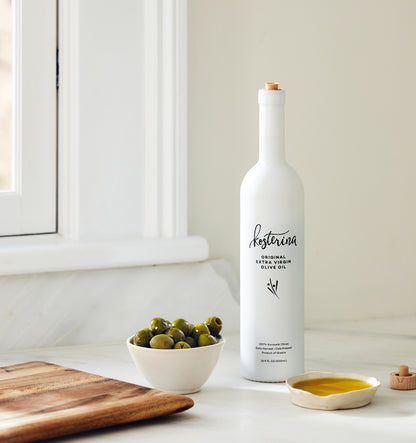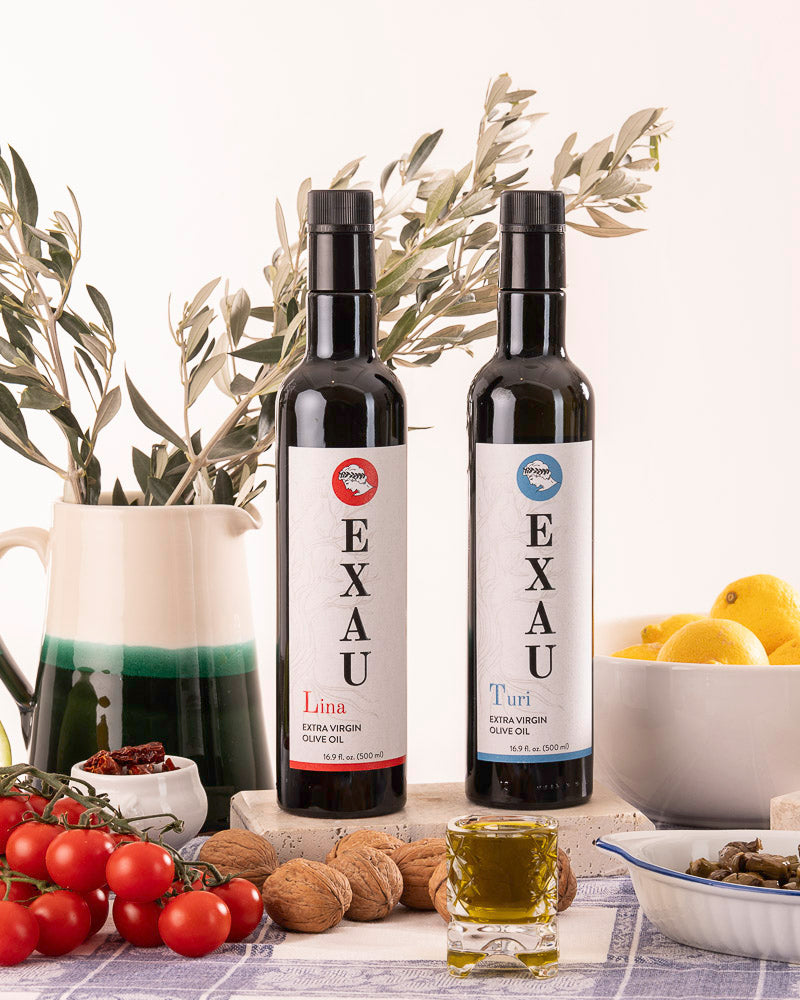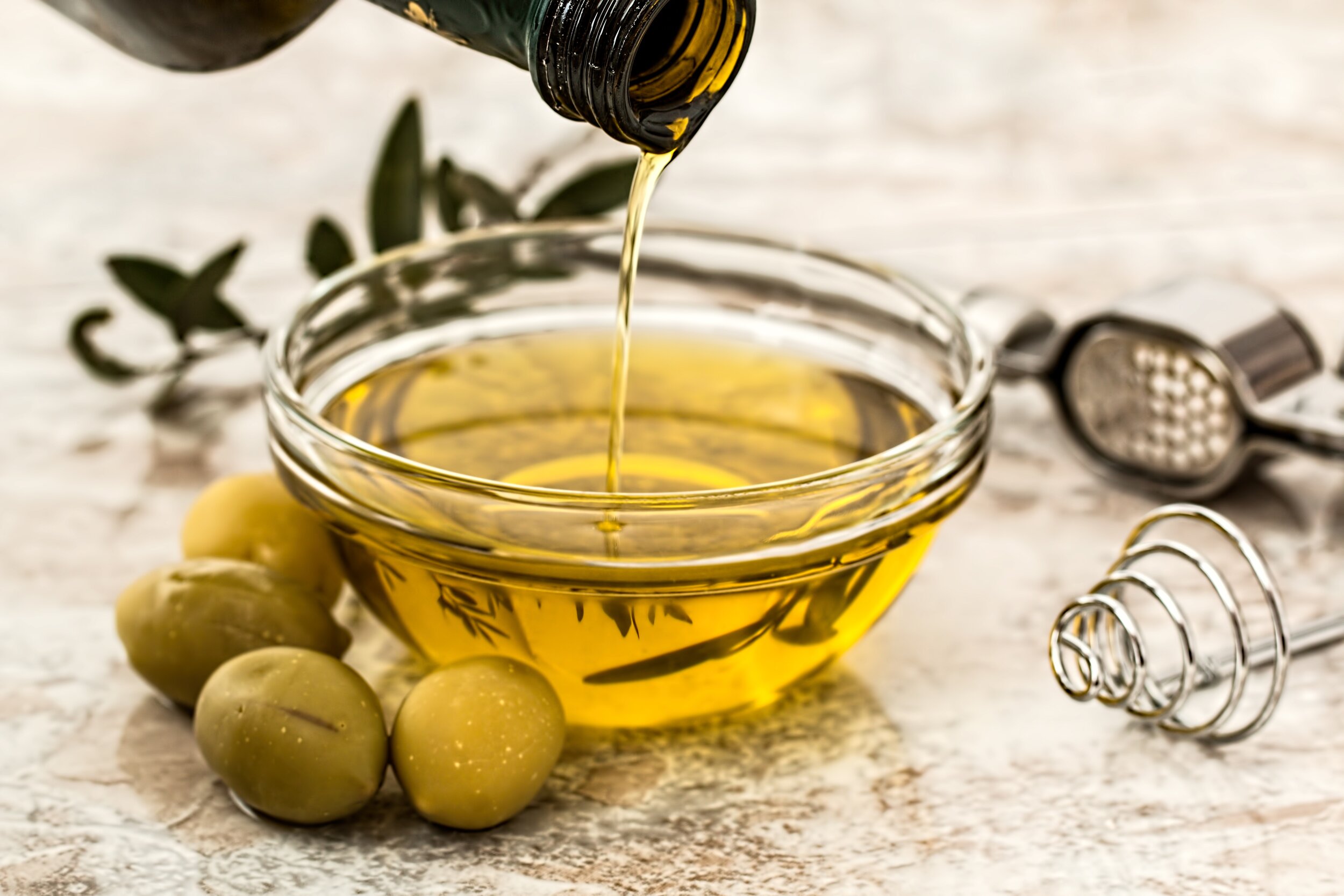Extra Virgin Olive Oil Benefits: A Delicious Way to Prevent Cognitive Decline
Extra Virgin Olive Oil Benefits: A Delicious Way to Prevent Cognitive Decline
Blog Article
Exploring the Various Types of Olive Oil and Their Uses, Including Bonus Virgin Olive Oil
The exploration of olive oil includes a diverse range of kinds, each offering unique flavors and culinary applications. Extra virgin olive oil, renowned for its superior top quality and health and wellness advantages, works as a staple in lots of kitchens, yet it is just one element of this diverse active ingredient. extra virgin olive oil benefits. Various other selections, such as pure and refined olive oils, additionally warrant interest for their one-of-a-kind residential properties and uses. Understanding these distinctions can considerably affect both food preparation strategies and flavor accounts. What, after that, should one think about when picking the appropriate olive oil for a specific cooking endeavor?
What Is Olive Oil?
Stemmed from the fruit of the olive tree, olive oil is a staple in Mediterranean food and a vital active ingredient in different culinary applications. This versatile oil is generated by pressing entire olives, leading to a liquid that varies in aroma, flavor, and color depending upon the kind of olives used, the area of cultivation, and the removal procedure. Olive oil is mainly made up of monounsaturated fats, specifically oleic acid, which is known for its possible health benefits, including anti-inflammatory buildings and cardiovascular support.
Along with its culinary uses, olive oil has a long history of application in typical medicine and skin care, owing to its rich antioxidant web content (extra virgin olive oil benefits). The oil is often utilized in dressings, marinates, and for cooking methods such as sautéing and roasting. Its distinct flavor account can boost the taste of different recipes, making it a crucial active ingredient for both home chefs and professional chefs
Furthermore, olive oil is commemorated for its role in the Mediterranean diet plan, which is connected with countless health and wellness benefits. As awareness of these advantages expands, olive oil remains to gain appeal worldwide as an essential part of a healthy lifestyle.
Kinds Of Olive Oil
Comprehending the different kinds of olive oil is essential for both cooking lovers and health-conscious consumers. Olive oil is classified primarily based upon its removal method and high quality, which significantly affects its taste, health, and fragrance advantages.

Light olive oil, in spite of its name, describes a lighter flavor and not reduced calories. It is suitable for those looking for an extra refined preference in dressings and sauces. Furthermore, there are flavorful olive oils instilled with herbs, flavors, or citrus, which can improve dishes without the requirement for extra spices.
Each kind of olive oil offers specific cooking purposes, and understanding these differences allows customers to make informed options that straighten with their food preparation styles and health objectives.
Additional Virgin Olive Oil
Bonus virgin olive oil (EVOO) is widely pertained to as the highest possible quality olive oil available, popular for its rich flavor and numerous health advantages. To be classified as additional virgin, the oil needs to be generated from fresh olives using mechanical processes, without using solvents or excessive warm. This thorough technique preserves the oil's all-natural flavors, antioxidants, and healthy fats, causing an item with a reduced acidity degree of less than 0.8%.
EVOO is bountiful in monounsaturated fats, specifically oleic acid, which is linked to lowered swelling and improved heart wellness. It likewise consists of polyphenols, effective antioxidants Check This Out that might supply protective results versus chronic diseases. The taste profile of EVOO can vary dramatically depending on the olive range and area of manufacturing, ranging from fruity and verdant to durable and peppery.

Culinary Use Olive Oil

In food preparation, olive oil can be used for sautéing, toasting, and barbecuing, offering a much healthier option to butter or various other fats. Its high smoke point makes it suitable for numerous cooking methods, while its anti-oxidants add to a heart-healthy diet regimen. Showering olive oil over completed meals, such as pasta, fish, or grilled vegetables, can raise tastes and include a touch of elegance.
In addition, olive oil plays a substantial duty in baking, where it can like this change conventional fats in recipes for bread and pastries, passing on moisture and a subtle taste. It likewise acts as a base for instilled oils, allowing cooks to experiment with flavors such as garlic, herbs, or chili, further increasing its culinary possibility. On the whole, olive oil's adaptability makes it essential in both home and specialist cooking areas.
Finding Quality Olive Oil
When selecting high quality olive oil, it's necessary to take into consideration numerous vital elements that affect the product's aroma, health, and flavor advantages. First and foremost, decide for additional virgin olive oil (EVOO), which is derived from the initial cold pressing of olives and contains the highest degree of anti-oxidants and useful compounds. Look for oils that are licensed by acknowledged organizations, as this frequently ensures adherence to stringent quality requirements.
The product packaging likewise plays a substantial function in protecting the oil's honesty. Select oils kept in dark glass containers or tins to protect against light destruction. Focus on the harvest date; fresher oils use exceptional flavor and dietary worth, so select products that are within 18 months of their harvest.
Be aware of the preference; a good quality olive oil must have a balance read of fruity, bitter, and sharp notes, indicating its richness and intricacy. By evaluating these factors, you can guarantee you are selecting the best olive oil for your culinary demands.
Verdict
In summary, the expedition of numerous types of olive oil reveals distinct qualities and applications, with added virgin olive oil representing the peak of high quality because of its low level of acidity and high antioxidant material. Its flexibility in cooking uses enhances tastes in dressings, sauces, and drizzles. Understanding the various ranges of olive oil enables notified choices in food preparation techniques, advertising much healthier methods while enriching the general gastronomic experience. Quality choice continues to be important for ideal benefits.
Acquired from the fruit of the olive tree, olive oil is a staple in Mediterranean cuisine and a vital ingredient in different cooking applications.The most typical types of olive oil consist of refined olive oil, pure olive oil, and light olive oil.Extra virgin olive oil (EVOO) is widely pertained to as the highest possible quality olive oil available, celebrated for its abundant taste and various health and wellness benefits. Opt for extra virgin olive oil (EVOO), which is obtained from the very first cold pushing of olives and contains the highest levels of antioxidants and valuable compounds.In recap, the exploration of various kinds of olive oil discloses distinctive attributes and applications, with extra virgin olive oil standing for the peak of high quality due to its reduced level of acidity and high antioxidant web content.
Report this page